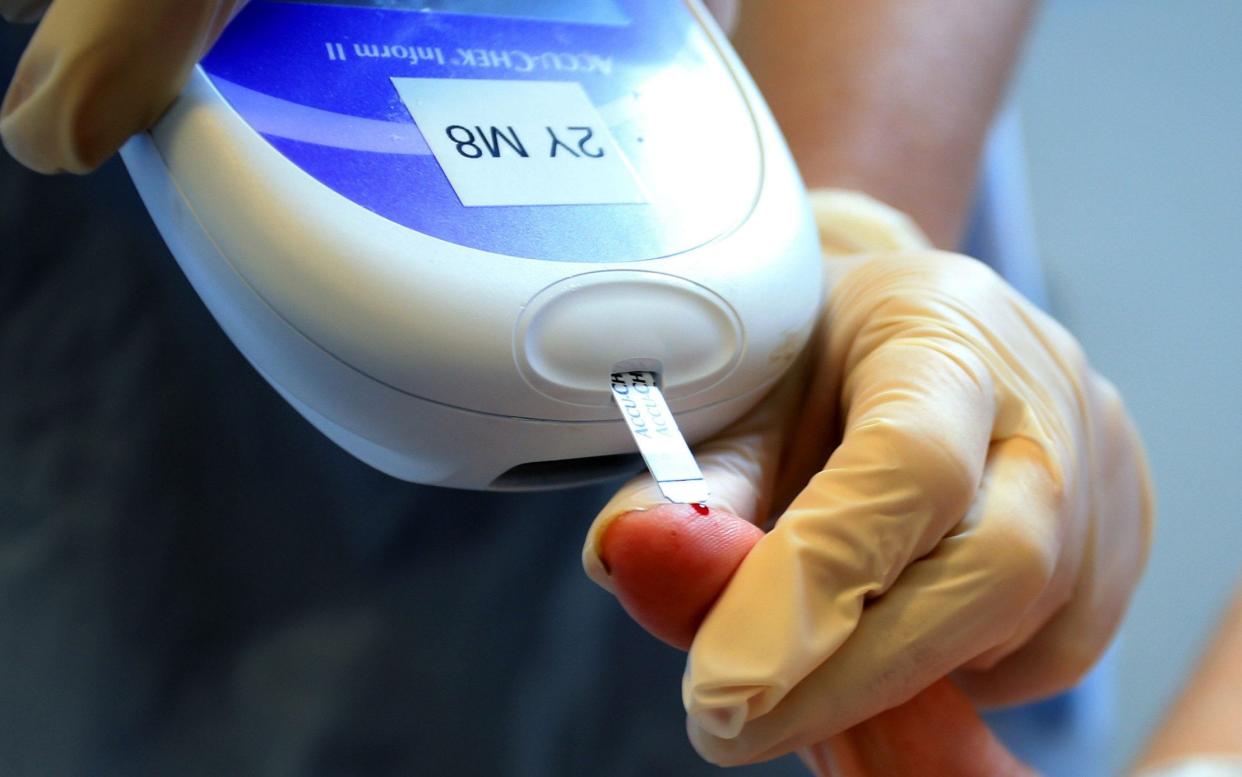Diabetics may be forced to self-isolate at home after lockdown is lifted, government review suggests

Diabetics could be forced to shield at home against Covid-19 following a review by government scientists after it emerged sufferers are at significantly greater risk of dying if they catch the virus.
Professor Peter Horby, chair of the New and Emerging Respiratory Virus Threats Advisory Group (Nervtag) advisory group, confirmed to the Telegraph that diabetes was being considered as part of an "active review" of the most vulnerable groups.
Almost one in three deaths from coronavirus in hospital had diabetes, it emerged this week, and the professor of emerging infectious Diseases and Global Health at Oxford's Nuffield Department of Medicine is now in advanced discussions with other government advisors.
Most diabetics are currently classed as "clinically vulnerable" rather than the "clinically extremely vulnerable" - the worst affected group of people who received letters from their doctors telling them they must stay at home under almost all circumstances.
However, scientists will consider whether sufferers need more protection after official figures showed people with autoimmune type 1 diabetes are three-and-a-half times more likely to die if they catch Covid-19 than non-diabetics, while type 2 diabetics - generally linked with being overweight - are twice as likely to die.
Bridget Turner, director of policy at Diabetes UK, told the Telegraph she hopes the Government does not implement any blanket rules. "It’s important to remember that everyone with diabetes is different, so a blanket ask of shielding for everyone with diabetes is unlikely to be appropriate," she said.
Nine out of 10 diabetics have type 2, and many are obese, which is another significant factor in the worst affected Covid patients.
Earlier this month, a study of almost half a million Britons found that being obese doubles the risk of needing hospital treatment for coronavirus. Researchers from Glasgow University found that as body mass index (BMI) increased, so did the risk of having a severe case of the disease.
The Telegraph also disclosed last week how doctors at the Royal Brompton had established that most serious Covid patients suffered blood clots, another factor which can be dangerous for diabetes sufferers.
Around four million people in the UK have diabetes so it is unlikely they would all be forced to shield. "That’s because the advice for people asked to shield is very restrictive, so it’s important to balance the advice against the level of risk," Ms Turner added.
"For those who are shielding, particularly if they do not need to, the psychological and emotional impact could be significant, while the stress – and restrictions to movement – could equally have an impact on someone’s overall health and wellbeing and, specifically, their blood glucose control. But it is incredibly important that the Government uses the latest data to inform their advice, to ensure that the guidelines around shielding are not only proportionate, but also in direct response to the data available.
"We understand that Nervtag will review the evidence for shielding, including what evidence is emerging about who is at highest clinical risk of severe illness if they catch Covid-19. This will inform the future of the shielding programme."
Meanwhile, Public Health England has begun a review examining how obesity, along with gender and ethnicity, can affect health outcomes. Overall, 29 per cent of adults of all ages are obese, compared with an average of 19.5 in the latest international audit by the Organisation for Economic Co-operation and Development. Analysis in 2017 revealed the UK as the fattest nation in Western Europe, with obesity rates twice those of countries including Sweden and Norway.
A Department of Health and Social Care spokeswoman said: “The guidance on shielding and protecting people who are clinically extremely vulnerable from Covid-19 has been developed by expert doctors. They have identified specific medical conditions that, based on what we know about the virus so far, place someone at greatest risk of severe illness from Covid-19. We continue to keep this evidence under review.”

